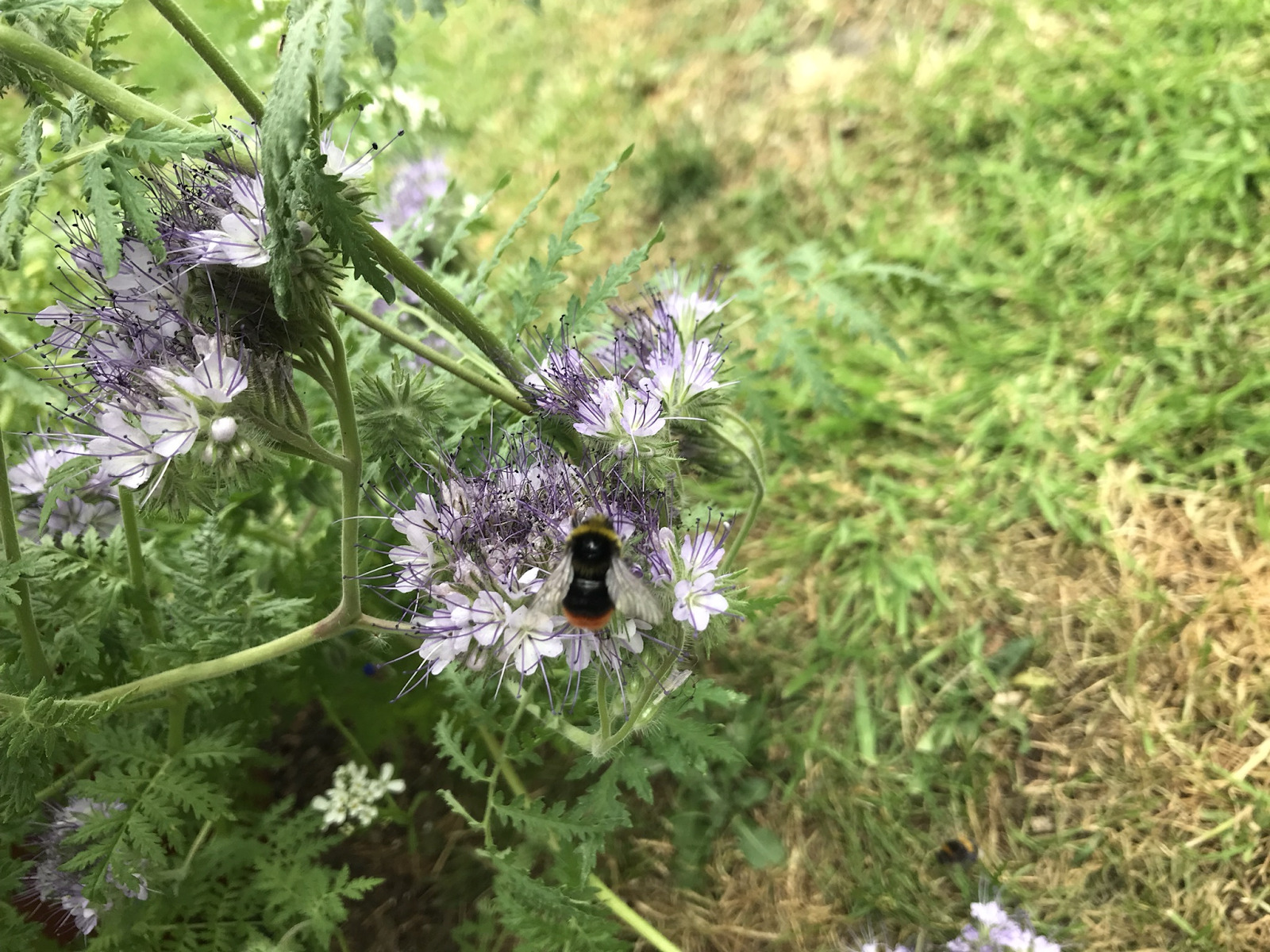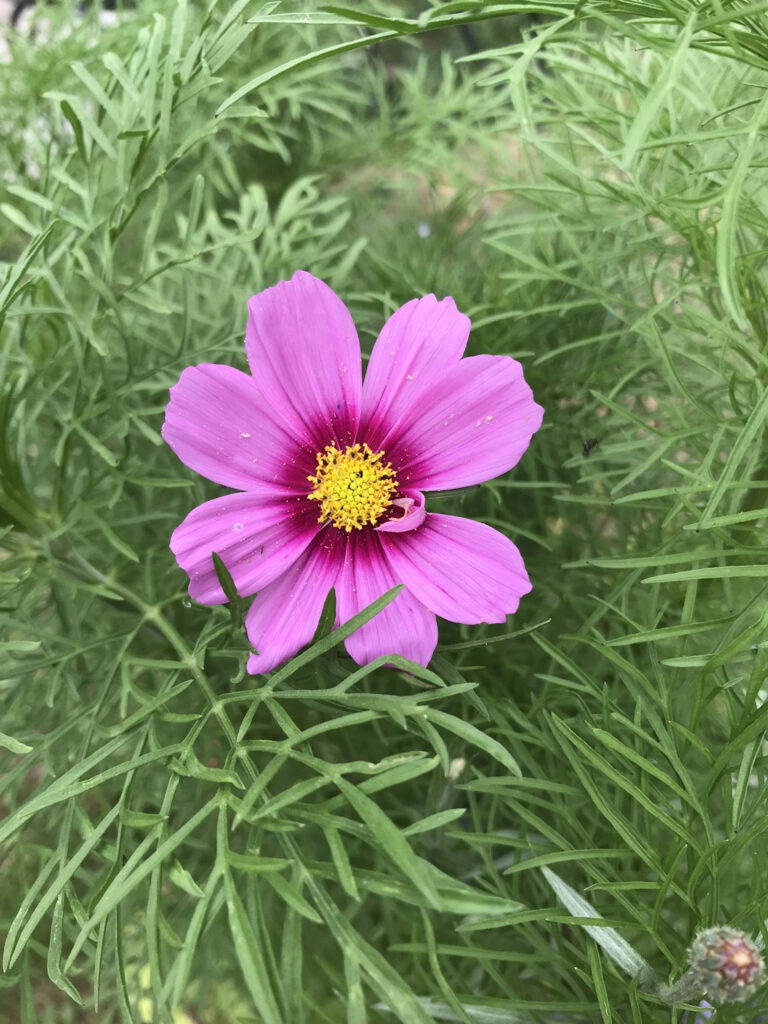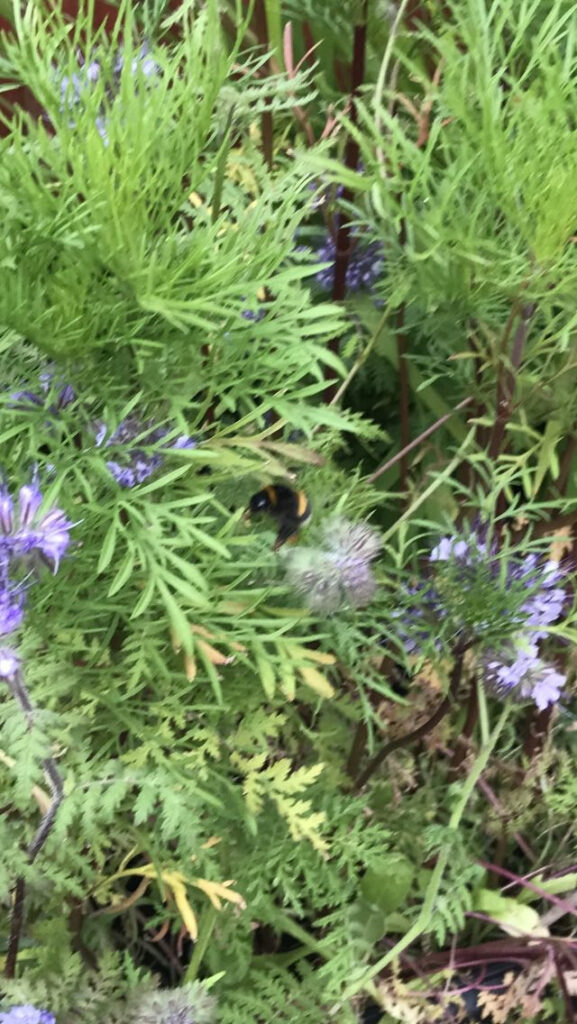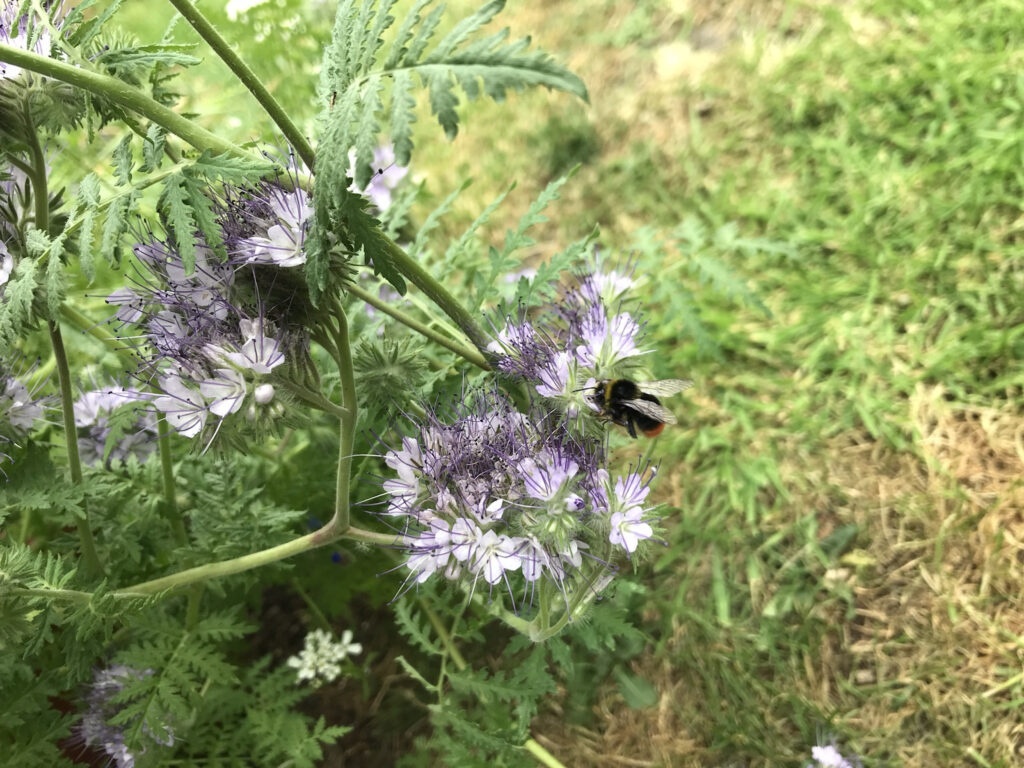

Jun 20th, 2023
Busy bees: how 38 Degrees supporters are creating a buzz
By 38 Degrees team
Without our bees we simply wouldn’t survive. From pollinating crops of the foods we eat and the homes of other wildlife to keep them thriving, our bees are crucial to human life and our ecosystem. [1]
But with changes in temperatures and habitat loss, the wild meadows and flowers bees feed on and thrive in are fast disappearing, which means our bees could struggle to survive. [2] Britain’s bees need our help.
So, to come to the aid of our fuzzy, flying friends, 38 Degrees supporters have been sowing bee friendly seeds in gardens, pots, planters and windowsills across the country over the past couple of months. A few weeks on from putting seed to soil, now spring has well and truly sprung and summer is here – bee friendly flowers are blooming in homes all over the UK.
Here are just a few of the photos and messages we’ve received from our community who’ve taken part…

“My seeds for the bees have brought swarms of bees to my garden, bringing so much pleasure to me and an understanding of the bees and how they work to my young grandchildren! Thank you.”

“Bees are loving the flowers that came up from the free seeds!”

“I hope you will be happy to know that on a very narrow central London balcony I now have bees, I believe thanks to the seeds which you sent to me!! Whoopee, by the way I am nearly 90 and really enjoy my very small space!“
For years, the 38 Degrees community has been supporting our buzzy friends this way by signing up for free packets of bee friendly seeds and planting them wherever they have space, growing environments where bees can thrive.
Thanks to everyone who signed up for seeds this year – from the whole 38 Degrees team and Britain’s bees!
If you have photos of seeds you’ve sown that have bloomed, please send them to us at bees@38degrees.org.uk or post them on social media using the hashtag #BeeFriendlySeeds.
NOTES:
[1] RSBP: Why are Bees so important? – our buzzing workforce
[2] Metro: Bees have become ‘increasingly stressed’ by climate change

















